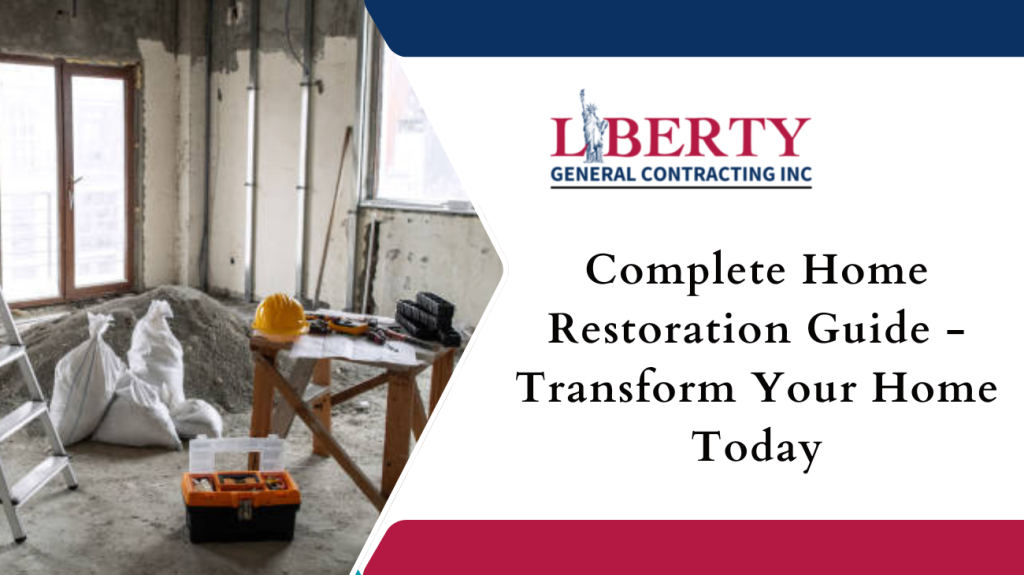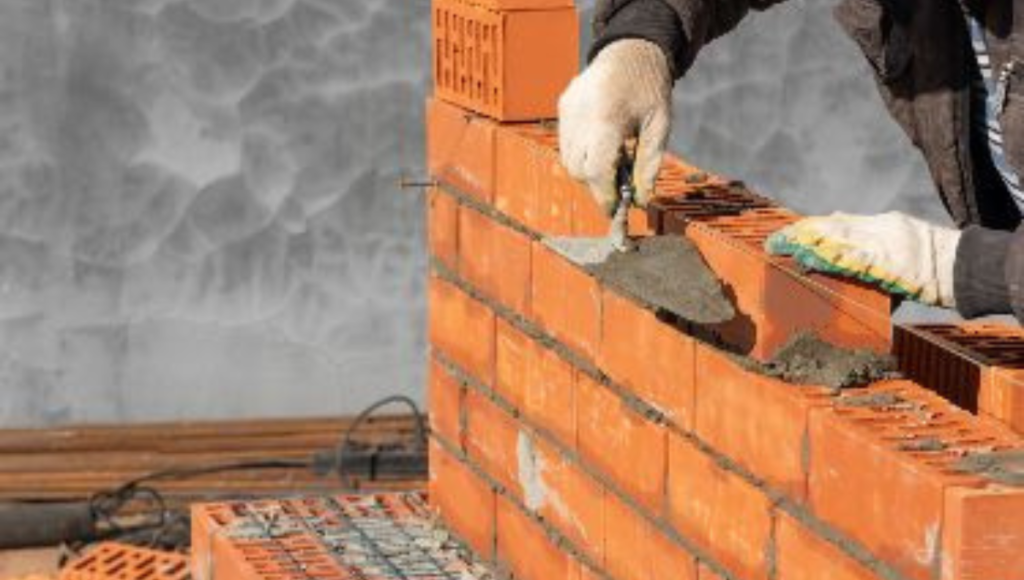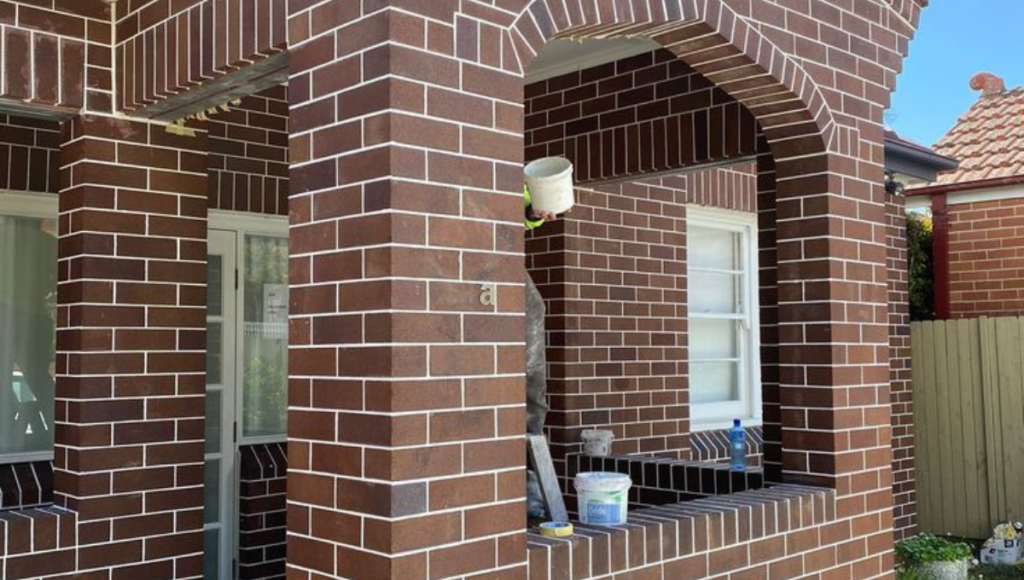When your home begins to show signs of aging, damage, or outdated design, the best way to bring it back to life is through home restoration. Whether it’s repairing structural issues, restoring old architecture, or upgrading interior and exterior elements, home restoration helps maintain comfort, value, and the beauty of your living space. It is a detailed process that focuses on renewing the existing structure instead of replacing everything. In this comprehensive guide, we will explore what home restoration is, why it is important, types of restoration, steps to follow, benefits, mistakes to avoid, and more.
What is Home Restoration?
Home restoration refers to the process of returning a home to its original condition or improving it without changing its main structure. It involves repairing damaged areas, repainting surfaces, refinishing flooring, restoring woodwork, fixing roofing issues, and more. The goal of home restoration is to preserve the functionality, charm, and beauty of the property, especially if it is old or historically valuable.
Unlike renovation, which may involve major alterations, restoration focuses on keeping the home’s original look and structure intact. It’s ideal for homes that have suffered due to time, weather, poor maintenance, water damage, or aging materials.

Why Home Restoration is Important
Many homeowners choose home restoration for several strong reasons. Here’s why this process matters:
Preserves the Value of Your Property
A well-maintained home holds its value. If ignored, damages can reduce property worth. Home restoration protects and enhances the value of the house, making it more attractive to buyers if you ever plan to sell.
Maintains Historical or Architectural Charm
Older properties have unique designs and character that newer homes don’t. Home restoration helps preserve this special charm, making sure the original details and craftsmanship remain intact.
Prevents Further Damage
Minor issues can become major problems if ignored. Small leaks, cracks, mold, or weak foundations can lead to expensive repairs later. Restoring your home early prevents severe damage and higher costs.
Budget-Friendly Compared to Rebuilding
Restoration focuses on repairing instead of replacing everything, which makes it more cost-effective. For example, restoring wooden flooring costs less than installing new flooring entirely.
Eco-Friendly Option
Home restoration reuses existing materials wherever possible. This reduces waste and supports sustainability. Instead of dumping old construction materials, restoration gives them a new life.
Signs Your Home Needs Restoration
Knowing when to restore your home is important. Look out for these signs:
- Cracks in walls, ceilings, or foundation
- Roof leaks, broken shingles, or water stains
- Damaged flooring or weak wooden structures
- Mold growth or damp smell
- Outdated kitchen or bathroom utilities
- Peeling paint and damaged drywall
- Termite damage or pest infestation
- Faulty electrical or plumbing systems
If you notice any of these issues, home restoration is the right solution.
Types of Home Restoration
Home restoration includes multiple categories depending on the type of repairs or improvements needed. The major types include:
1. Structural Restoration
This focuses on repairing the structure of the house including foundation repairs, walls, beams, load-bearing structures, and roofing. It ensures the home remains solid and safe to live in.
2. Exterior Restoration
Exterior restoration enhances the outside appearance of the house. It may include painting, roof restoration, repairing driveways, restoring siding, fixing windows, replacing gutters, and landscaping improvements.
3. Interior Restoration
Interior home restoration improves inside living spaces. It includes upgrading walls, flooring, lighting, furniture, ceiling repairs, and restoring original woodwork or interior decor.
4. Electrical and Plumbing Restoration
Electrical wiring or plumbing systems become outdated or damaged over time. Restoration ensures safe and efficient electrical circuits, water supply, drainage, and fixtures.
5. Historical Home Restoration
This specialized restoration preserves original architecture and design. Experts carefully restore antiques, original materials, and classic features so the property retains historic value.
The Home Restoration Process: Step-by-Step Guide
To ensure a successful home restoration, follow this step-by-step process:
Step 1: Inspection and Assessment
Begin by evaluating the condition of the home. Identify areas that need repair or replacement. Professional inspectors can help detect hidden issues like mold, termites, or wiring problems.
Step 2: Planning and Budgeting
Create a detailed plan outlining what needs to be restored and how it will be done. Set a realistic budget and timeline. Prioritize urgent repairs like roof leaks or damaged plumbing before focusing on aesthetics.
Step 3: Hiring Professionals
Home restoration may require experts such as contractors, architects, electricians, plumbers, and interior designers. Professional help ensures quality work, safety, and compliance with building codes.
Step 4: Structural and Safety Repairs
Start with the most important repairs: foundation, roofing, electrical wiring, plumbing, and mold removal. These are essential for the safety of your home and must be fixed before cosmetic improvements.
Step 5: Interior and Exterior Restoration
Once structural repairs are done, proceed with painting, flooring upgrades, window replacement, roofing restoration, wall treatments, and restoration of damaged interior/exterior materials.
Step 6: Final Touches and Inspection
After all the work is completed, carry out a final inspection. Ensure everything is restored properly and meets required standards. Add finishing touches like decor, landscaping, and interior styling.
Cost of Home Restoration
The cost of home restoration varies depending on:
- Size of the home
- Level of damage
- Age of the property
- Material and labor costs
- Type of restoration required
On average, homeowners spend from $5,000 to $50,000+. Historic home restoration or major structural repairs may cost more.
Benefits of Home Restoration
Home restoration provides long-term benefits such as:
| Benefit | Description |
| Increased Home Value | Boosts resale value with improved condition |
| Improved Safety | Repairs electrical, structural, and plumbing hazards |
| Better Aesthetics | Enhances interior and exterior appearance |
| More Comfort | Creates a better and more enjoyable living environment |
| Energy Efficiency | Updated fixtures reduce electricity and water bills |
Common Mistakes to Avoid in Home Restoration
Avoid these mistakes to ensure a successful restoration:
- Skipping initial inspection
- Underestimating the budget
- Choosing cheap materials
- Doing everything yourself without experience
- Ignoring building codes and permits
- Not hiring qualified professionals
DIY vs Professional Home Restoration
| Aspect | DIY Restoration | Professional Restoration |
| Cost | Cheaper but risky | More costly but safe |
| Quality | Depends on skills | High-quality expert work |
| Time Required | Long, slow process | Faster, efficient work |
| Tools Needed | Must buy or rent tools | Professionals bring all tools |
| Safety | Risky due to lack of experience | Safe and insured |
If restoration requires electrical, plumbing, or structural work, always hire professionals.
Final Thoughts
Home restoration is an essential investment to keep your house beautiful, safe, and comfortable. Whether your house is aging, damaged, or just needs a fresh look, restoring it brings back its charm and functionality. It is a smart decision that increases property value, prevents future damage, and creates a healthier living environment. By following the right restoration process, hiring skilled professionals, and avoiding common mistakes, you can transform your home into a renewed and improved space.
Contact Liberty GCNY
Website: www.libertygcny.com
Phone: (347) 682-9840
Serving: Manhattan, Brooklyn, Queens, The Bronx, and Staten Island
Address: 251 N Regent St, Port Chester, NY 10573, United States
Need Help with Your Next Project? Call Liberty GCNY Today!
Fast responses. Expert advice. Trusted service across NYC and beyond.


